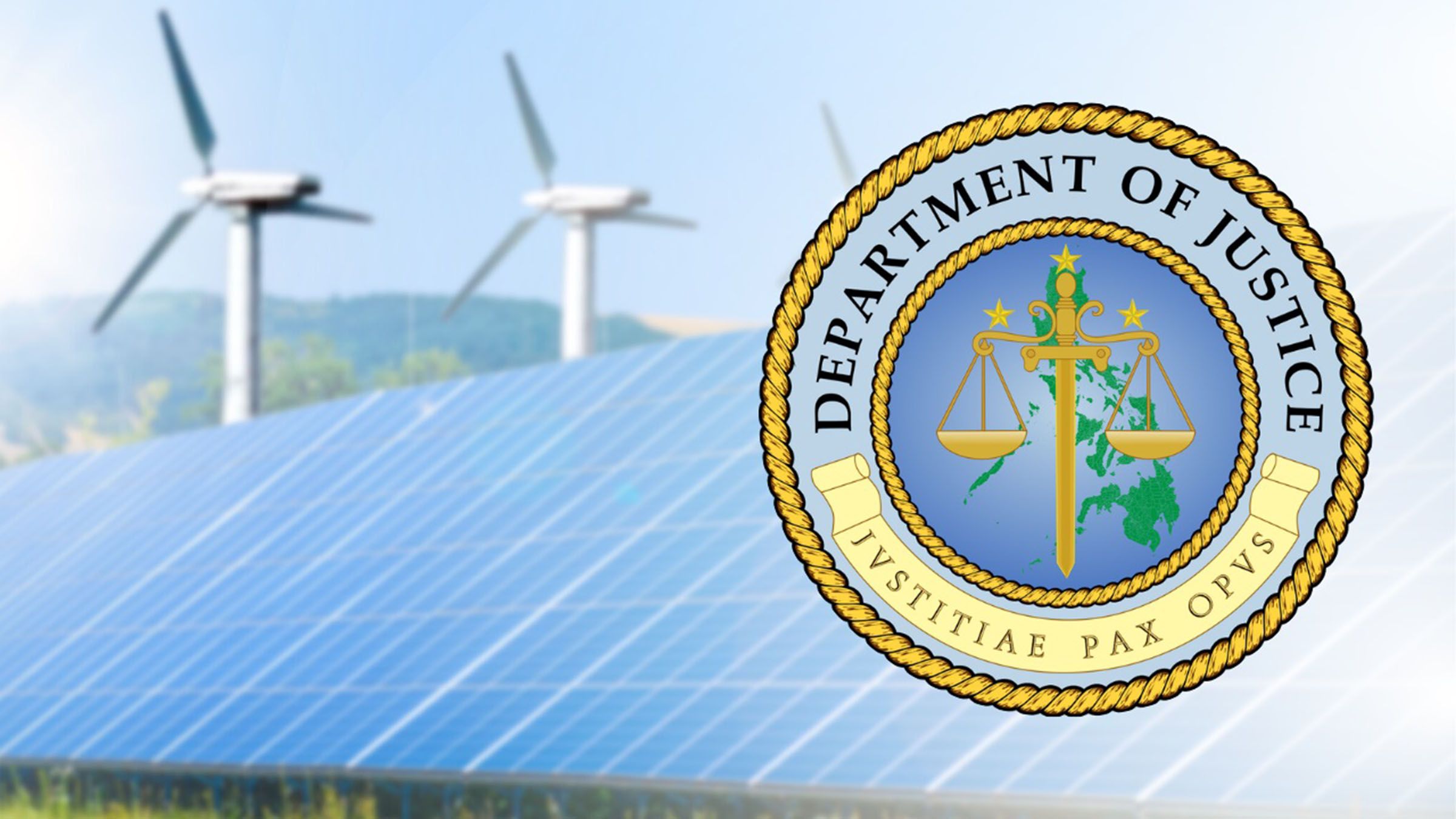The Department of Justice said foreign investments in RE projects are not covered by the foreign ownership limit based on the Constitution as these can be replenished and are clean energy. Hence, the Department of Energy must revise its regulations on RE projects.
The Marcos administration's goal of increasing the use of indigenous and renewable energy (RE) in the Philippines received a major boost after the Department of Justice (DoJ) ruled that investments in this sector are not subject to the Constitution's 40 percent foreign ownership limit.
DoJ cited Section 2, Article XII of the 1987 Constitution, which deals with natural resource exploration, development, and utilization, "only covers objects that are subject to appropriation, thereby eliminating the sun, wind, and ocean."
It said that the Constitution's wording "all forces of potential energy" should be read to exclude "kinetic energy."
REs such as solar, wind, and hydro are considered as kinetic energy while potential energy refers to energy at rest.
“Moreover, the intent of the constitutional foreign ownership restriction was to preserve for Filipinos limited and exhaustible resources,” the CNN quoted the DOJ.
“The compelling reason behind the constitutional foreign ownership restriction finds no application to inexhaustible renewable energy sources,” it added.
Revised IRR
DoJ said that the Department of Energy (DoE) must revise the implementing rules and regulations (IRR) of Republic Act (RA) No. 9153 or the Renewable Energy Act of 2008 before considering more foreign investments in the renewable space.
Based on the current regulations, foreign developers may be permitted to engage in renewable energy production through a service or operational contract with the government, but their own participation is limited to 40 percent.
DoJ added that the "appropriation of waters, direct from the source, for power generation" should continue observing the 60-40 equity rule.
"We express our appreciation to DOJ Secretary Crispin ‘Boying’ Remulla and his legal team for this favorable development which will pave the way for the opening of foreign investments in renewable energy development," Energy Secretary Raphael Lotilla said.
Lotilla added that the DoE would start looking into the 40 percent equity limit for foreign investors and is already preparing the necessary amendments to the IRR.
This is a welcome development, especially since the government is planning to increase the share of REs in the power generation mix to 35 percent by 2030, and 50 percent by 2040.
REs would help in reducing the cost of energy and is also much cleaner as they are natural sources that are replenished at a higher rate than they are consumed. They are plentiful and all around us.
Examples would be the sunlight and wind that are constantly being replenished and available especially in the Philippines as the Philippines is mostly a tropical country.
Last 2020, the government permitted complete foreign ownership of large-scale geothermal projects through financial and technical support agreements, as long as the minimum investment was $50 million.
Based on DoE’s data, there are around P270.8 million invested in renewables so far, with solar accounting for nearly half of the total at P130.4 million, followed by wind at P52.9 million, hydropower at P38.7 million, biomass at P38.2 million, and geothermal at P10.5 million.
The DOE had also issued 998 renewable energy contracts as of June 2022, with a total installed capacity of 5,460.59 megawatts and a potential capacity of 61,613.81 MW.
Tags: #Foreign, #Investments, #REs, #DoE, #DoJ

